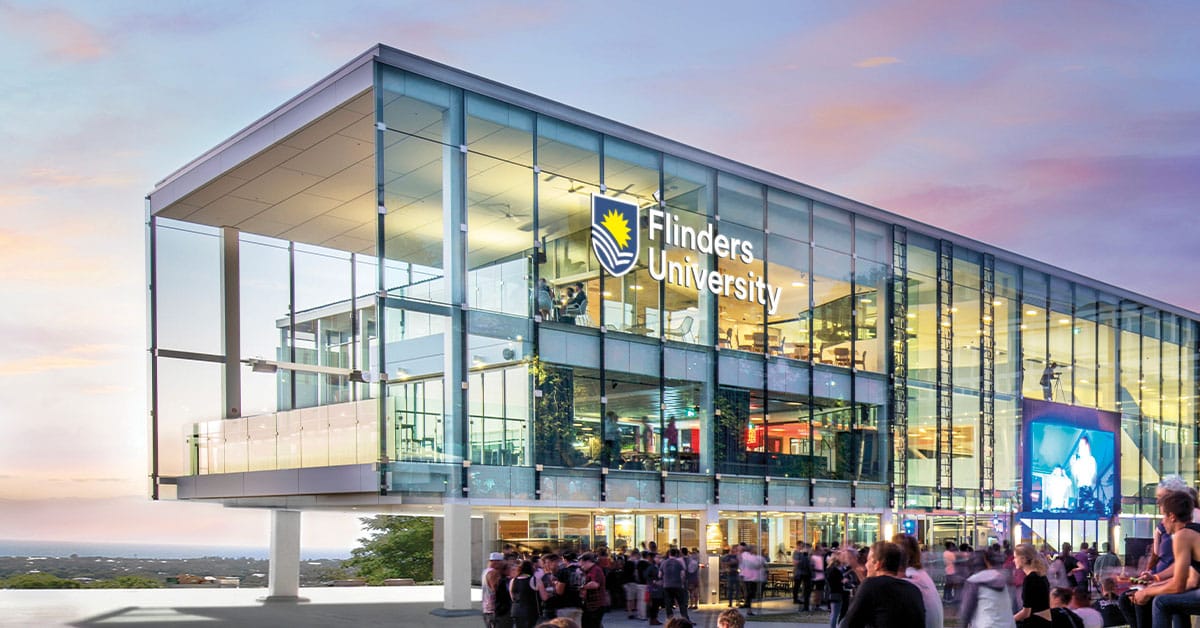Using Proteomics to Investigate the Pathogenesis of COPD and Severe Asthma at the University of Technology Sydney, Australia 2023
Application is now open for the Using Proteomics to Investigate the Pathogenesis of COPD and Severe Asthma at the University of Technology Sydney. Interested applicants are encouraged to send their applications in before the deadline date.
About the University of Technology Sydney and Scholarship
The public research university University of Technology Sydney (UTS) is located in Sydney, New South Wales, Australia.
Outstanding candidates with a background in biomedical sciences, pharmacology, pharmacy, or a related field are encouraged to apply for a fully funded Ph.D. scholarship under the supervision of Post-Doctoral Fellow Dr. Matthew O’Rourke at the UTS proteomics node and Prof. Phil Hansbro at the Center For Inflammation, Centenary Institute.
This project aims to rapidly develop a multiplex technique for proteoform analysis using state-of-the-art crosslinking mass spectrometry and 2D gel analysis. To define how proteins are handled inside cells after translation and how this is connected to the pathophysiology of COPD and severe asthma, this information will be combined with data from bulk and single-cell RNA sequencing.
Severe asthma and chronic obstructive pulmonary disease (COPD) are the two respiratory diseases that cause morbidity the most frequently. Asthma wheezing in severe cases, considerable breathing issues, and illness are all common, and COPD commonly ends in fatalities. As a result of the ongoing COVID-19 outbreak, patients with chronic respiratory disorders are currently seeing worse outcomes. This has a significant ongoing financial impact on both people and health systems throughout the world.
The Prof. Hansbro-led Center for Inflammation UTS/Centenary Institute is one of only four Australian research centers equipped to study in-vivo COVID-19 infections and has a distinguished history of creating human-representative animal models to study severe asthma and COPD. By integrating these well-established models with sophisticated proteomics based on mass spectrometry, and bulk and single-cell RNA sequencing. The goal of this study is to clarify how proteins interact with transcripts and what part they play in the development of the pathophysiology of severe asthma and COPD.
Students will work at the UTS PC2 laboratories under the direction of Post-Doctoral Fellow Dr. Matthew O’Rourke at the UTS proteomics node and Prof. Phil Hansbro at the Center for Inflammation, Centenary Institute. Students will have the opportunity to learn proteomic techniques such as crosslinking mass spectrometry (XL-MS), LCMS, protein extraction and purification, and biomarker characterization.
The chosen candidate will also collaborate closely with the Hansbro lab at the Centenary Institute to create trustworthy animal models that will allow them to combine transcriptomics, whole genome sequencing, and proteomic analysis to create a comprehensive multi-“omics” based thesis. Additionally, students will be able to hone their writing and publishing abilities for peer-reviewed articles as well as their bioinformatics capabilities. Additionally, students will get the chance to present their research at conferences that are known globally, take part in regional gatherings, and attend academic seminars.
Details about Using Proteomics to Investigate the Pathogenesis of COPD and Severe Asthma at the University of Technology Sydney:
Scholarship Sponsor: University of Technology Sydney, Australia
Scholarship Value: $32,500 per year (RTP Stipend rate, indexed annually); additional funds ($7.5k) during the course of the PhD for travel and other PhD-related expenses
Number of awards: N/A
Study level: PhD
Host Institution(s): University of Technology Sydney, Australia
Eligibility Criteria for Using Proteomics to Investigate the Pathogenesis of COPD and Severe Asthma
Applicants are advised to meet the following prerequisites to be qualified for Using Proteomics to Investigate the Pathogenesis of COPD and Severe Asthma at the University of Technology Sydney:
- Candidates must be either nationals of New Zealand or permanent residents of Australia.
- Candidates must be holders of a bachelor’s degree in a biological or medical field.
- Have a proven track record in the classroom and have laboratory experience
- Completion of an Honours degree with a First Class, Second Class, or Division 1; an MSc in Research; or an MSc in Coursework with a research thesis lasting at least six months.
Selection Procedure
- Be extremely driven and able to work alone
- Possess a keen team focus
- Possess outstanding communication skills, and the capacity to collaborate with established teams of individuals from different backgrounds
- Awareness of the requirements and setting of a research or laboratory
- Possess computer literacy for using typical research apps.
- Possess the capacity to maintain correct lab data.
- ELISA, RNA extraction, reverse transcription, qPCR, western blotting, cell culture, aseptic method, histological analysis, immunohistochemistry, immunofluorescence, flow cytometry, and primer design expertise are examples of common lab procedures.
- Has the ability to run in vivo mouse models.
Application Procedure for Using Proteomics to Investigate the Pathogenesis of COPD and Severe Asthma
To learn more and learn how to apply, prospective applicants may get in touch with Prof. Phil Hansbro. If you are interested in the project, attach a CV and a brief statement of your interest. Candidates who make the shortlist will be notified and given more information. To find out more, get in touch with Prof. Phil Hansbro.
The Application Deadline is: 01 November 2023
Not interested in this particular scholarship? See other Australia scholarships here.








